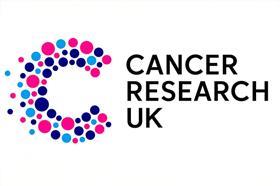Darren Beach talks to Steven Appleton about the importance of talking to your clients about philanthropy, shared values and succession planning

An epiphany one Sunday morning made Steven Appleton, head of Brabners’ Manchester private client team, realise that philanthropic giving was the most positive way his clients could make an impact.
“I ran a marathon for two charities that were important to me and raised the princely sum of £1,200. And then I thought, well, if I have to keep doing this to raise money, my poor knees aren’t going to last very long,” Appleton told us. “I thought, what if I started having conversations with clients and they decided that charitable giving or philanthropy was the right thing for them?”
He has since dedicated plenty of time and effort, working alongside Cancer Research UK, to provide clients with opportunities to make a long-term impact on cancer survival through philanthropic giving. There’s never been a more important time to invest in cancer research. While cancer cases are forecast to increase, scientists are on the brink of discoveries that will transform how we prevent, diagnose and treat the disease.
Philanthropy as a passion
I asked Appleton if raising philanthropy as a topic had increased giving. “Even if we just start with charitable giving, many have never really considered engaging in any degree of philanthropy, so there’s a cohort that’s interested but doesn’t know where to start” he said.
Appleton stressed the differences between ‘charity’ – a short-term, emotional response such as a single donation – and ‘philanthropy’ – a longer-term, strategic focus on enabling a charity’s strategy.” He cites “eudaimonic happiness” as how clients begin to realise the wider positive aspects of philanthropy – the ‘why should I do this?’ angle. “Essentially, ‘eudaimonic’ is an enduring form of happiness that’s often expressed as: doing good that makes you feel good in a way that is lasting and fulfilling,” he said, contrasting it with ‘hedonic happiness’ that results from quick-win joy that very swiftly wanes.
Authenticity is key, too. The desire to have a lasting impact goes far beyond naming a hospital wing. There are many opportunities where strategic investment can have a much broader impact. “By us helping clients to see the very real impact their investment could make, they begin to feel personally fulfilled and value and appreciate the wider benefits of philanthropy,” Appleton said.
Good for advisers, too
According to Appleton, clients are more likely to choose an adviser who is knowledgeable about charitable giving. For professional advisers, there are clear benefits of engaging with clients about philanthropy. After all, there is a ‘future generation’ of clients who are probably more sensitive to philanthropic issues. Securing their loyalty with tailored advice can only be a good thing.
“For baby boomers, their focus is on family, which is something I see among my clients. For Generation X, it is empathy; and for millennials, it is generosity.”
Perhaps this provides insight into how advisers can engage with different generations of the same family, and help clients understand philanthropy, the act of giving and doing so strategically. But Appleton states there is “categorically not” enough training on charitable giving for the professional advice sector. “For this reason, Cancer Research UK has a network of professional advisers with whom it engages, putting on regular education programmes to add value to its client relationships.”
Succession planning
Succession planning and philanthropy are intrinsically tied together, not just from a tax perspective, but also from a values one. Appleton said: “It’s about shifting the conversation from being solely about gifting once you’re gone, to why don’t we start to do something now?”
Of course, there are tax benefits to giving. Advisers can explain all about the different tax reliefs on charitable donations. Appleton says this is “a good conversation starter” to begin engagement over other philanthropic ideas.
“I’ve come across clients with a significant investment portfolio, which they’ve concluded they don’t need and have donated the portfolio to charity. The charity can then redeem this without having to pay the capital gains tax,” he added.
Meanwhile, from a financial perspective, giving to charitable causes – and engaging in pro-social behaviour and fundraising – can result in greater wealth retention across generations.
“I’ve seen families talking with children and grandchildren about how money works and being empathetic to the needs of others,” Appleton said. “It’s particularly important in families where the ‘wealth creator’ worked hard to come up from nothing but their children have grown up in comparative luxury.”
Everyone benefits
The benefits of encouraging philanthropy are widespread. For wealth advisers, it’s about building deeper relationships, improving their offering and aligning clients’ investment strategies with philanthropic goals. Clients can understand the best investment to make a lasting impact balanced with succession, inheritance and wealth transfer targets. And for Cancer Research UK, it’s about seizing the opportunity presented by rapid technological advancements which are enabling groundbreaking discoveries that will change our understanding of cancer.
Philanthropic support can accelerate progress, changing the outlook on cancer for this generation and the next. But more investment is needed to power science to go further, faster.
To find out more, visit here
This article was first published in the Investors’ Chronicle





